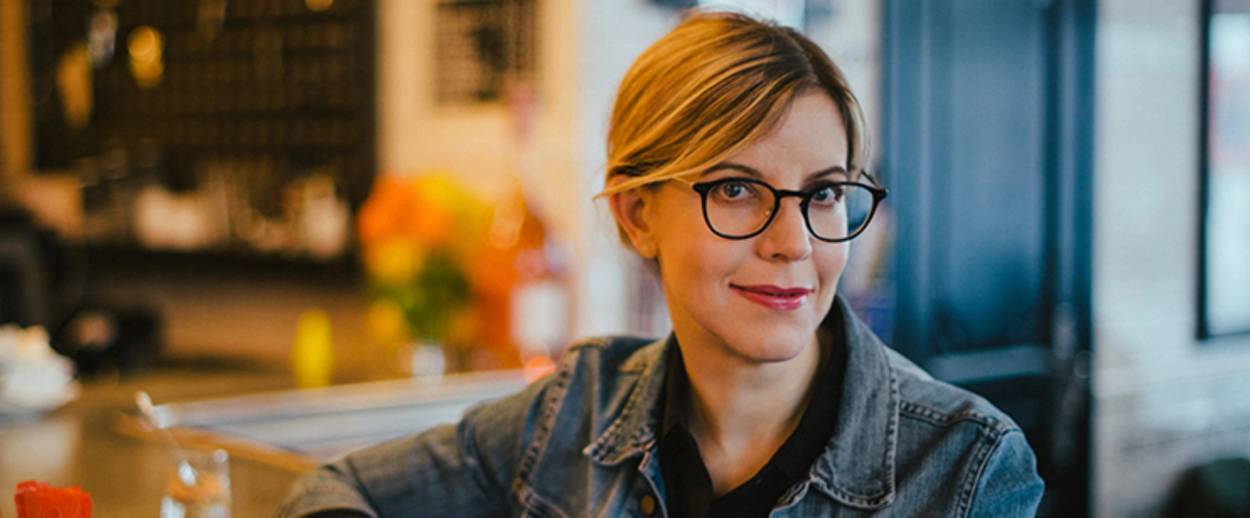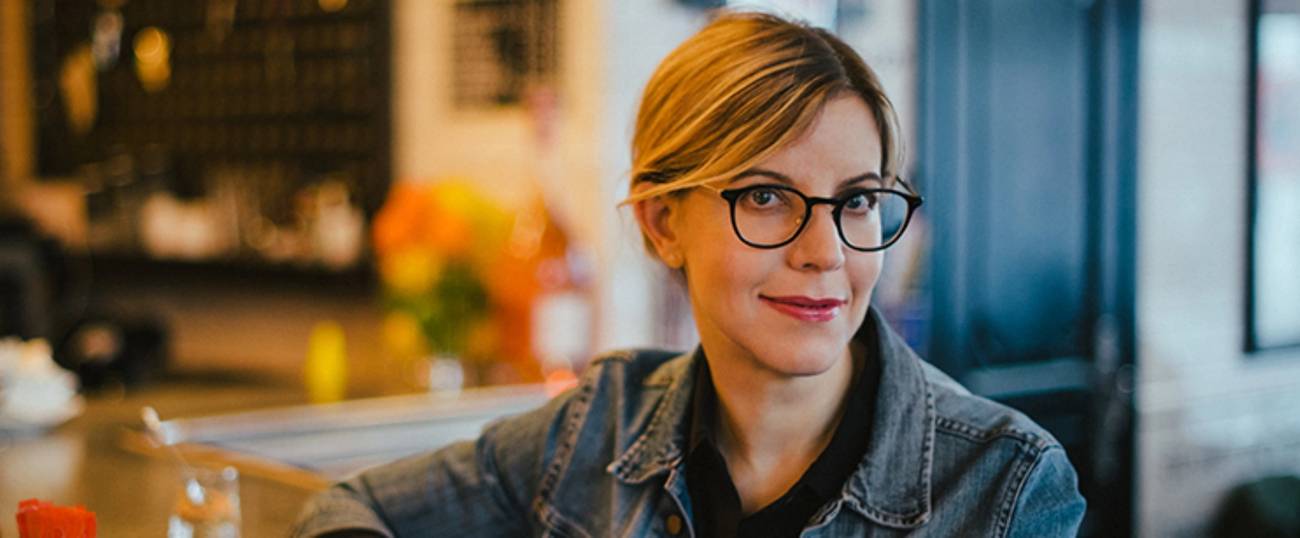An American in Paris, Dispensing Wisdom
Pamela Druckerman’s new book is a (very French) guide to maturing gracefully




The American Library located several blocks from the Eiffel Tower on the on the Rue du Général Camou is perhaps the most American institution in Paris. The French general earned the honor of having a street named after him with a gallant performance during the Crimean war, but the American expatriate community of Paris had gathered to hear the tale of a different sort of bloody campaign. The room was packed with every variety of American living abroad, from the frumpy to the older gentlemen in blue blazers with golden buttons. On Monday evening, The New York Times columnist Pamela Druckerman was speaking on one of the final stops of the publication tour of her new memoir, There Are No Grown Ups: A Midlife Coming Of Age Story, which promised to expose the French secrets of aging gracefully and living well to mere mortals.
Druckerman’s previous book, Bringing Up Bébé, became an international sensation with its promise to teach people how to raise their children in the French manner. The new book is a sort of follow-up volume of life advice, an extended version of many of the Times columns Druckerman has written on such existentially important issues as the feeling of growing old when Parisian women cease being referred to as “mademoiselle” at the corner bistro and enter into the “madam” stage of life.
The author was petite, bespectacled, and possessed of the studied Parisian charm for which she had become a sort of walking Anglo-Saxon advertisement. An American woman with a British husband and three kids in Paris in her late 40s, she was just now, she said, learning to be an adult. Her professional writing life was consecrated to explicating the neurosis and centuries-old desires of an American living in Paris. Having given the same talk over and over again at bookstore and on television shows, Druckerman decided to interview herself instead, asking the questions that she would have liked to have been asked during the tour. Her questions and answers, like her book, were an engaging meditation on growing older from the perspective of a wry and self-reflective American abroad.
The gathering at the American Library turned out to be a conclave of the tight knit circle of American writers in France. The writer Thomas Chatterton Williams, who is based in Paris and is expecting his second child, attended the talk. “I think Pamela is one of the funniest people—let alone writer—I know” Williams said, sometime after the first glass of wine. “She could do standup, and there’s wisdom in there too:Bringing Up Bébé literally taught me how to prepare to have a child. Being hilarious and wise are two incredible qualities to combine”.
The Question and Answer session after the talk proved Williams correct, as Druckerman fielded questions about anything from political correctness in America to having written about having a threesome with her husband for his 40th birthday. When asked what advice she had for Americans living abroad, Druckernan didn’t miss a beat: Don’t eat too many croissants.
Which is of course very good advice.
Out of the material of her own deeply particular life in Paris, that of a Miami bred Jewish-American international journalist obsessing in a Seinfeldian manner over what should really by all rights seem to be insufferably bourgeois pseudo problems, Druckerman has fashioned something that is universally engaging. In the process, she has emerged as an unlikely yet relatable bard of the aspirational approach to a universal quest for elegance for mothers from Brazil to Mongolia. In fact, in There Are No Grown Ups, Druckerman muses on the charming manner that her Mongolian fans, sitting in their Yurts, must have of teaching their children to say “Merci”. Much of the book is about social relations, etiquette, and the art of friendship, an art many English speakers learn only when they are forced to live abraod among foreigners. The narrative posits that growing up is synonymous with growing out of one’s neurosis into a deeper civilized engagement with social life, one that is based in deepening ones social connections. In fact, the deep theme of the book is that the quest for emotional intelligence, situational mastery, and social awareness can take several decades of concerted effort. Quelle horreur.
Vladislav Davidzon is Tablet’s European culture correspondent and a Ukrainian-American writer, translator, and critic. He is the Chief Editor of The Odessa Review and a Non-Resident Fellow at the Atlantic Council. He was born in Tashkent, Uzbekistan, and lives in Paris.